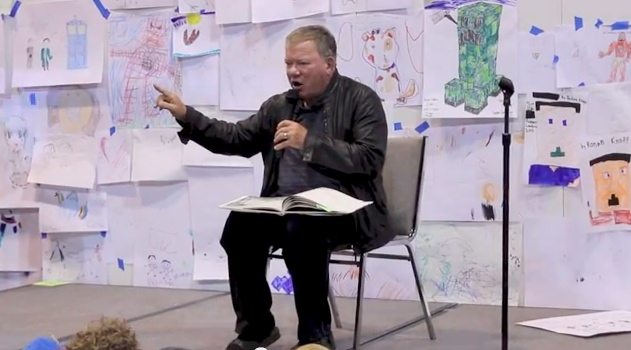Last May, my community assembled about two dozen interesting people to share what they know on stage. The theme in Bloomington, Indiana’s Buskirk-Chumley theatre that day was “Wisdom of Play.” Speakers included a mix of local, regional and national speakers talking about a range of passions around that broad topic.
All of the talks from TEDxBloomington are now online, but there were a handful that specifically dealt with learning and alternative education that resonated with me.
Rock-n-Roll as a Way to Boost Self-Esteem
Girls Rock Indianapolis is a non-profit rock-n-roll camp run by co-founder Lindsay Manfredi, a member of the band Neon Love Life. The program leverages the shared experience of music-making as a way to improve the way tween and teen girls perceive themselves. “They tell you growing up to reach for the stars and go for your dreams,” recalls Manfredi, “but I didn’t have the tools, I didn’t have the education, and I totally didn’t have the support. It’s time to walk the talk. I’m the adult now.”
Participants in Girls Rock learn how to play guitar, work the drums, and sing, preparing them to collaborate with members of their band and perform original songs. Throughout the process, local women join the girls as mentors through workshops that share other skills, interests, and concerns. The 2011 camp is taking place this month with 60 girls ready to rock. Manfredi says the impact extends beyond the girls: “We had one parent write us and say, ‘Thank you for curing my daughter of Bieber Fever. She’s now asking about Blonde and Patti Smith.'”
Expressing Truth Through Games
Inspired by the life and inner-life of J.R.R. Tolkien, Indiana University Professor of Telecommunications Edward Castronova has made an academic career out of studying online games and virtual worlds. His work on the economics of EverQuest produced critical insights that legitimized gaming as a serious activity. “The most important reason for game literacy,” he says, “is that through games we learn something about ourselves and about the nature of reality.”
Quoting Tolkien, Castronova emphasizes the escapism aspect of gaming, something that predates computers but is now significantly easier through contemporary technology. “That’s why you have millions of people who would have never had anything to do with an Orc taking on alternate realities,” he explains. Castronova prefers to think of this as “refuge,” rather than escape. Gaming today is about seeking where one belongs.
Teaching By Living Green
Sarah Elizabeth Ippel is the executive director of the Academy for Global Citizenship, a public elementary school founded with an environmental sustainability mission. By making practicing green living their curriculum, AGC has also created an environment for holistic learning. “It’s not merely about recycling bins and composting bins and solar panels,” explains Ippel. “Sustainability is about developing this deeply-rooted playful and intriguing love affair with the earth.”
The AGC’s parcel of blacktop in southwest Chicago is home to a solar learning lab, gardens, rain barrels, a chicken coop, and a wind turbine. The process of growing plants combines many lessons that range from science and geography to literature and math. “This is where we play, and this is where we learn,” says Ippel.
The Wonder in Learning Spaces
As an architect who designs schools, Amy Yurko is interested in bringing play and learning back into the same space. Yurko is the founder of BrainSpaces, a consulting firm that advises school districts around the country on the design of their learning environments.
“Environments that blend play and learning are key.” Yurko shares several examples of interesting and engaging learning spaces, including beaches, boats, and wind tunnels. In each example, there are experiences that are usually absent the traditional school context but which spark engagement with young learners. “These things happen in children’s museums all the time,” Yurko notes. “Why can’t we put them in schools?”
Tinkering as a Curriculum
My favorite talk of the day came from Gever Tulley, a national speaker who is a veteran of the TED stage and author of Fifty Dangerous Things (You Should Let Your Children Do). He also runs the Brightworks tinkering school in San Francisco.
Tulley invokes musician Andrew Bird by saying “What the world needs now is reckless curiosity.” Brightworks thrives on that idea, reveling in the lessons learned from failure as much as mastering challenges. Students learn through arcs that allow them to dive deeply into the many facets of a theme, moving from exploration to a specific experimental plan, and then sharing the results of that work with the public and peers.
Education has always been a big part of Big TED. If these five talks aren’t inspiring enough for you, try the nearly 100 others by education experts that the organization has captured over the years.

